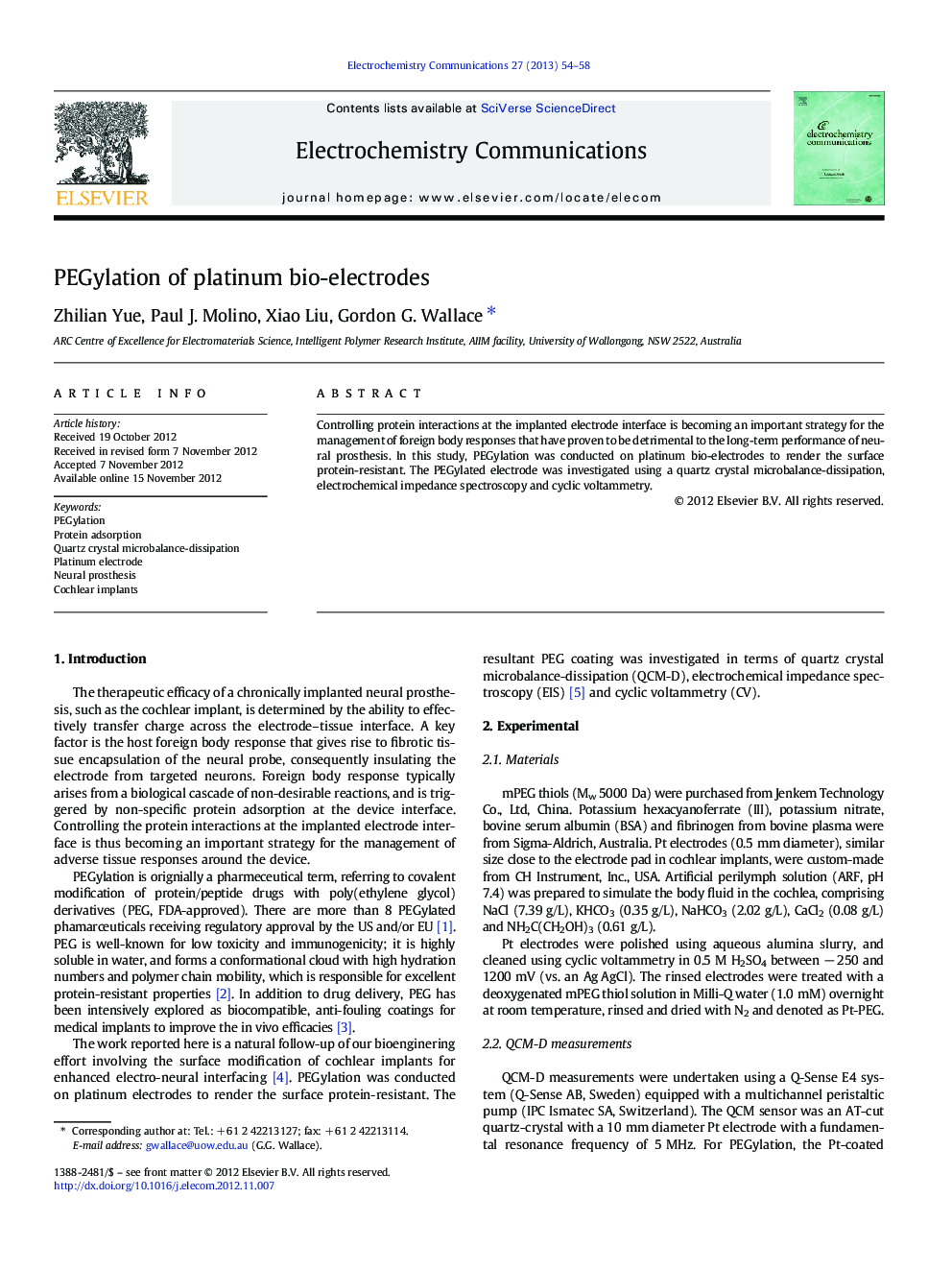| Article ID | Journal | Published Year | Pages | File Type |
|---|---|---|---|---|
| 179532 | Electrochemistry Communications | 2013 | 5 Pages |
Controlling protein interactions at the implanted electrode interface is becoming an important strategy for the management of foreign body responses that have proven to be detrimental to the long-term performance of neural prosthesis. In this study, PEGylation was conducted on platinum bio-electrodes to render the surface protein-resistant. The PEGylated electrode was investigated using a quartz crystal microbalance-dissipation, electrochemical impedance spectroscopy and cyclic voltammetry.
► PEGylation of platinum bio-electrodes ► Nano-sized, highly hydrated and permeable PEG adlay immobilized on Pt electrodes ► Excellent resistance to protein adsorption at the PEGylated electrode interface ► Moderate increase in in vitro impedance by PEGylation
